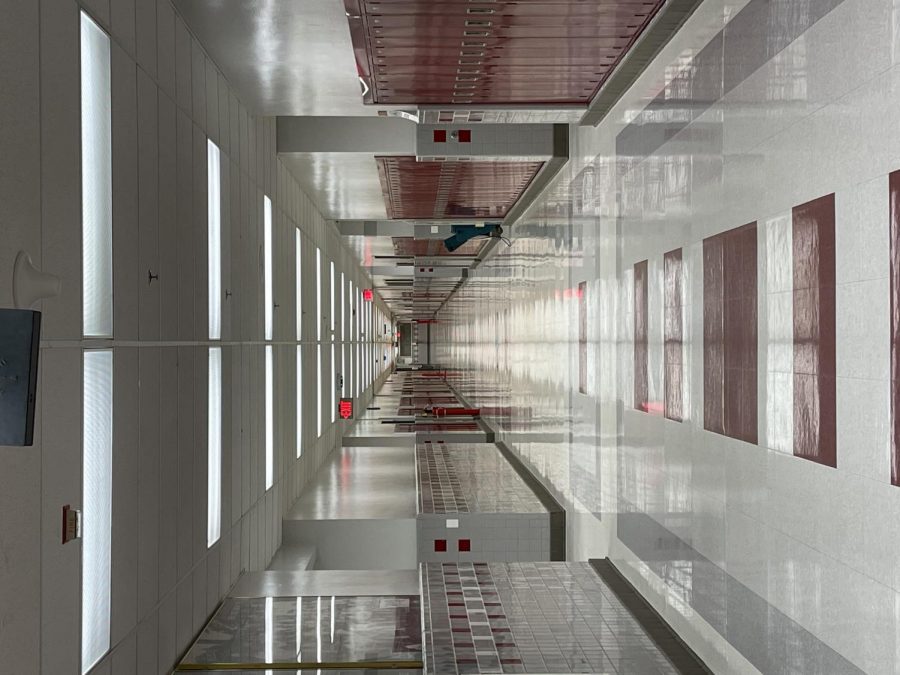How the pandemic changed school as we know it
A hallway that was once filled with students pushing past each other now stands empty with occasional students taking part in in-person learning.
On March 12, 2020, students were told that school would be canceled for a few weeks to control the spread of Covid-19, but those few weeks turned into a year.
Schools were forced to turn to online learning for the rest of the year which was mostly asynchronous.
Many students couldn’t find the motivation to do their work since none of it was graded but was rather an opportunity to raise grades for those who needed it.
The situation was worse on the other end too for teachers that weren’t trained to teach using technology. Teachers are trained to teach and work with students face to face, interacting via Google Meet was just not the same.
School was the least of some students’ worries as they were forced to get used to this new world.
Life was much different and hardly recognizable because of the precautions that were made to keep others safe and keep communities at bay from the virus.
“Before Covid, I was able to do so much with so many of my closest friends in school and I was also able to see places with more freedom and appreciation because there was no pandemic and people were outside and greeting each other and being happy,” senior Anthony Assadzadeh said.
“I was able to visit colleges, play basketball with my friends, and go to homecoming and have the time of my life, but with everything going on now, none of that fun can really happen.”
Before COVID-19, students were walking in the hallways and classrooms were filled with loud students, pencils tapping against desks and scraping chairs.
Now, the day to day life of most students is spent asleep in their beds while signed into a class, tuning out their teachers’ voices on their laptops.
When there’s no accountability, it’s hard to do what you’re supposed to.
At this point, many are just waiting for it to be over. Seniors this year are feeling “senioritis” more than past years.
“I can hardly get myself to sign on to class. I can’t wait to graduate and finish this year off,” senior Gabby Urbina said. “Had we been in school, it would be so much easier to keep my focus on my school work.”
Although many students do not like the idea of online school, many appreciate the liberty of being able to do school work on their own terms.
“I enjoy online school because I have the freedom to do school from anywhere now,” senior Kayla Trace said.
Others are more critical.
“Online school was a failure, in my opinion, and I just couldn’t get what I wanted out of it,” senior Anthony Assadzadeh said. “By the time I was allowed to come back, there wasn’t much else left of my high school experience,” Assadzadeh said.
Students like those that are heavily affected by the drastic changes in learning this past year have all had one thing in common: they are tired.
“I hope that whatever I do in the next few months set my path to college the right way,” senior Timothy Sue said. “Working while taking 5 IB classes have been a struggle lately, but I am pushing through with the encouragement of my peers and others around me.”
With staying up late at night, having countless amounts of homework, and now IB students are forced to finish their Internal Assesments as they are graded for their final IB grade, students do not know what to do.
“This kind of stuff takes a toll on us kids and sitting in front of a computer screen for seven to eight hours a day isn’t helping,” Assadzadeh said.

Senior Henry Hoang is an In-Depth Editor for The A-Blast. This year is his last as an editor on staff. In his free time, he loves hanging out with his...







